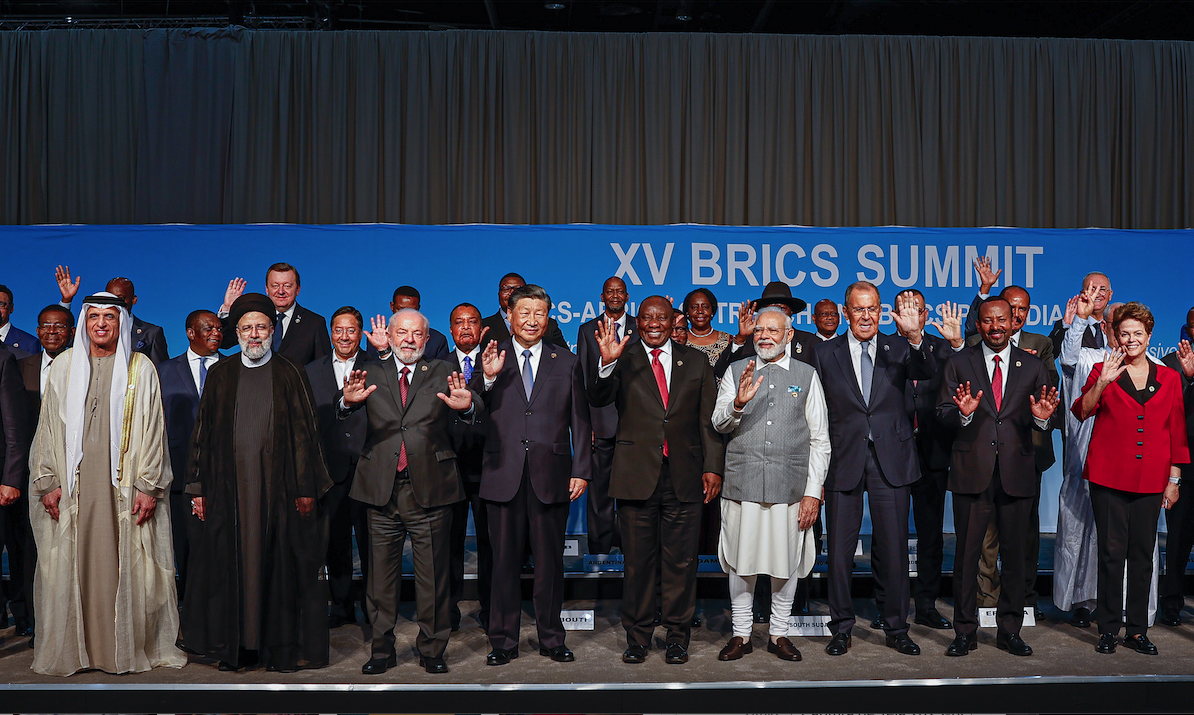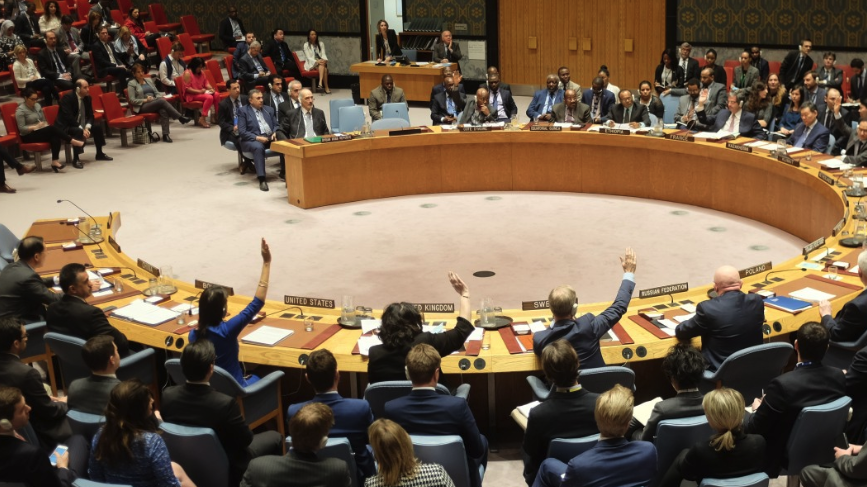
Published 08/26/2023 09:42 | Edited 08/28/2023 12:21
The XV BRICS Summit held in Johannesburg, South Africa, during the week, is already seen as historic due to the impacts it could have on geopolitics and the multilateral system, from now on. Luis Inácio Lula da Silva’s Brazil knew how to make the most of the meeting with important diplomatic gains.

To evaluate the result of the meeting between leaders from Brazil, Russia, India, China and South Africa, the Red Portal interviewed the professor of International Relations at PUC-SP, Augusto Leal Rinaldi. The political scientist is the author of “The Brics in Contemporary International Relations: Strategic Alignment and Global Power Balancing (Appris, 2021).
“The three main aspects worth mentioning are the invitation to new members, the support for Brazilian, Indian and South African candidacies for the UN Security Council and the encouragement of the use of local currencies in bilateral transactions”, said Rinaldi.
Read also: The Brics+ and the consolidation of a multipolar world
Owners of war and peace

Much has been said about Brazil having conditioned its support for the expansion of the BRICS on a consensual statement from the bloc to the Brazilian proposal to reform the United Nations Security Council. Since his first government, Lula has claimed a permanent seat for Brazil on the Security Council.
The Security Council has had five fixed members since it was created, along with the founding of the UN, in 1945: the United States, the United Kingdom, France, Russia and China. It was never reformed, despite the configuration of world powers having changed profoundly, which undermines decision-making capacity on international security issues.
Current member of the Security Council and Brics, China has so far resisted giving clearer diplomatic signals to support Brazil’s claim. The Johannesburg Declaration reveals, however, that the expansion of the bloc weighed more heavily on the Asian power. The first major mention of the issue in a document signed by China and Russia puts enormous pressure on the UN.
Read also: China goes over Western prejudices to expand BRICS
Brazil has been a member of a joint effort with India since 2005 to seek this expansion of the council. Both are members of the so-called “G4”, a group with Germany and Japan formed specifically for this purpose. The final text released on Thursday cites verbatim the expansion of the Security Council – and nominally Brazil as aspiring to a prominent role in this instance.
“We support comprehensive reform of the United Nations, including its Security Council, with a vision of making it more democratic, representative, effective and efficient, and of expanding the representation of developing countries on the Council so that it can respond appropriately to key global challenges and support the legitimate aspirations of emerging and developing countries in Africa, Asia and Latin America, including Brazil, India and South Africa, to play a greater role in international relations, particularly at the United Nations, including the Council of Security”, says the statement, in free translation.
Balance for Itamaraty

For Rinaldi, the balance is positive for Brazil, although expansion, in itself, was not the path preferred by Brasília, which was one of the governments most reticent to expansion. There is a fear that expansion will reduce Brazil’s influence, in addition to bringing together interests that do not necessarily converge. “In terms of challenges, it remains to be seen how Brazil will navigate an environment with new faces, possibly new agendas and an increasingly leading China,” he analyzed.
Read also: BRICS grows in influence with six more member countries
But the expert finds it difficult to imagine that, with China and Russia in favor of this movement, the BRICS would not end up, at one time or another, doing so. “In this sense, Brazil sought to establish a counterpart to give its formal support, which was precisely to extract from China a public declaration of support for our candidacy in the UN Security Council”, he stated.
In his opinion, the declaration can be read more as a protocol of intentions from Beijing than an active endorsement of Brazil’s entry into the body, “but these gestures matter in international relations”.
“Furthermore, Brazil clearly sponsored the entry of Argentina, which ended up being invited to join, so it is a benefit for Brazilian diplomacy in this sense,” he added.
East and West
Read also: What do countries that join BRICS gain?
For BRICS, says the expert, the entry of new members means “a change in the central purposes of the arrangement to demand changes and reforms in the structures of current global governance”. “This means that there are now more relevant countries that will help to support the historic demands for reform of multilateral international institutions – particularly the IMF, World Bank and UN Security Council – and to defend a democratization of international relations in their political and political dimensions. economic,” he says.

But the other side of this coin, in his opinion, is that for the United States, the BRICS could increasingly become a pole of power that Washington will have to deal with when trying to face global problems. That is, the BRICS will need to be consulted and heard at the main international discussion tables, otherwise facing these issues will not have the support of highly relevant countries such as Brazil, Russia, China and India.
“It is still too early to say whether the arrangement will take an anti-Western stance, but certainly the presence of countries such as Iran, Russia and China could pose a challenge to the United States to deal more directly with the bloc,” he states.
Rinaldi disagrees that there is an imbalance towards the East in the new BRICS configuration, which previously leaned more towards the rising sun. He believes that the entry of two new African countries, three from the Middle East and one from South America brought a new regional balance to the BRICS, considering that it already had three Asian countries (if we think of Russia as a Eurasian country). “In regional terms, now all developing regions are well represented”, he reaffirmed.
Read also: BRICS: Expansion of the Bloc has the support of all leaders
While the West is trying to understand whether the bloc will become a counterpoint to the USA and the European Union, the political scientist prefers to bet that the profile will continue to focus on bilateral issues.
He admits that expanding decision-making spaces always brings with it challenges of collective action. As BRICS is an arrangement whose declarations are consensual, we may continue to see the same dynamics that have prevailed since the beginning of the arrangement in 2009: more general annual declarations about international relations (with a focus on consensus around reform of institutions, denunciation of abuses of power by Western powers, etc.) and an intense, more diverse bilateral agenda. “In this sense, the new members seem to have come to add to the central purpose of the BRICS and, in parallel, help to strengthen bilateral political, diplomatic, commercial and financial ties between them”, he observes.
The issue of the war in Ukraine, with all its polarization between Global North and South, is a demonstration of the BRICS modus operandi. For now, Rinaldi believes that the bloc’s expansion affects very little the issue of war. He notes that the Russian-Ukrainian issue was not even highlighted at the meeting. “Only a few very formal statements were made about the episode, showing that the BRICS, at that time, was not willing to act more directly in confronting this issue. In the medium-long term, it may be that with the entry of Saudi Arabia, the United Arab Emirates and Iran, the closer trade between these countries and Russia will give even more financial impetus to Moscow, allowing the country to sustain the continuation of the war and circumvent the sanctions imposed. by the West”, he ponders.
Read also: Creation of BRICS currency will reduce vulnerabilities, says Lula
The Bank and the dollar

The accession of the six new full members has a very important interface in contributing to strengthening the New Development Bank (NDB). The professor emphasizes that, although they are different things, they are well related. “The Bank has already undergone expansion in 2021, and there is a very advanced process of including new members. In this sense, the synergy between the Bank and BRICS can open doors for new members and, therefore, further strengthen both spaces”, he bets.
In relation to the dollar, he believes that it is necessary to wait and see if, in fact, countries will start to favor their local currencies in bilateral transactions. The President of the Bank – Dilma Rousseff – set a target for the NDB to carry out 30% of its operations in local currency by the end of its mandate. “If this is done, it will certainly represent an important advance in the diversification of the basket of international currencies for carrying out commercial transactions.”
The effect on the dollar is twofold, as the expert points out: on the one hand, it can contribute to a decrease in its use by other countries; on the other, countries that adopt their currencies become less vulnerable to the effects of the economic policy adopted in Washington. “Therefore, it is an important movement for the international monetary system, but it still needs time to mature and assess the risks involved.”
Source: vermelho.org.br

